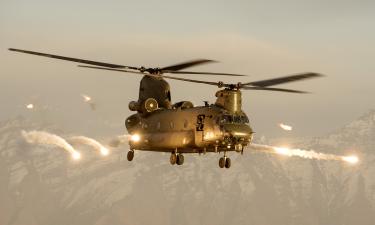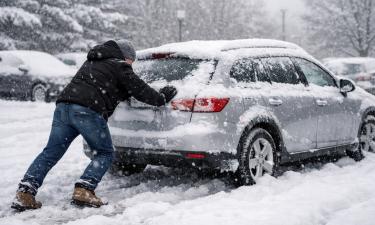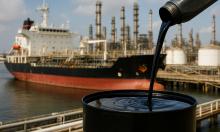Venezuela: Chavez Agrees With Opponents, As Marks First Anniversary of Failed Coup
One year after the frustrated coup that briefly took him away from power, Chavez agreed to a plan for a referendum on his presidency
The OAS - Organization of American States - sponsored negotiations table between the government of Venezuela and its foes had its first positive results, one year after established. Both sides in dispute agreed last week to hold a referendum on Chavez presidency after August 19, the halfway point of his 6-year term. The background: the celebrations of the first anniversary of his return to power after the ridiculous coup of 2002 and the destruction of the negotiations table that brought to light the so-called referendum, due to a bomb attack to OAS headquarters in Caracas.
Despite OAS Secretary General, Cesar Gaviria, satisfaction on the outcomes of the talks, the political situation in Venezuela is far from being under control. Firstly, it is not clear when the referendum would take place, as both side are only committed to avoid delays in organizing it. For instance, there is now a first dispute over the validity of the collected signatures needed to call on the referendum. The opposition gathered 2.5 million, but the government says that signatures were invalid as were collected before August 19, so "they will have to get them again", said Chavez.
However, the President of Venezuela and self-denominated leader of the "Bolivarian Revolution" that rules the country does not look worried about the results of the voting. "We will win", said Chavez recently, to further add defiant: "If I lose I will go". The agreement to work toward a referendum signaled that the opposition abandoned other initiatives to force Chavez's ouster before his term ends in 2007.
In turn, the United States, that one year ago had welcomed the coup against the Venezuelan constitutional authorities, congratulated both sides for the referendum proposal. "We applaud the government's and opposition's dialogue teams for their extraordinary efforts to plot the path forward for Venezuelans to peacefully and democratically build a better tomorrow for themselves," the U.S. State Department said. It looks like Powell & Co. Do not want to get involved again in any new unspeakable operation to drive the "marxist threat" out of Latin America.
By the time those discussion were taking place, President Chavez was busy celebrating his victory over the frustrated coup of April 2002 and, indirectly, over the failed two-months strike (lock out, to be more accurate) organized by the opposition. On Sunday, Chavez presided over the closing ceremony of an international forum in support of his "Bolivarian Revolution," while thousands of his supporters gathered on a central Caracas avenue.
"God bless April 13," Chavez said at the forum. "A miraculous day, the miracle of the start of the century. The first great victory of the people this century in the whole world", said the pompous leader to an audience that had very interesting guests. Among them, the Nicaraguan former President and Sandinist leader Daniel Ortega, who talked about the end of the United Nations after the US invasion of Iraq. Ortega said, concerning the international relation system's crisis after this invasion, the need of trusting in the strength of the Venezuelan people, Hugo Chavez Frias, the Cuban Revolution, Fidel Castro, the natives, and leaders such as Evo Morales from Bolivia and the Brazilian people of Lula Da Silva.
All in all, Chavez does not look worried about the referendum. The opposition says that a February poll by U.S. firms Greenberg Quinlan and Rosner Research and Public Opinion Strategies suggested Chavez could lose a recall referendum. Almost 60 percent of Venezuelans would vote against him, while 38 percent would support Venezuela's President, the survey suggested.
Therefore, either the poll is a fake or Chavez has other recourses to stay in power. No matter the case, it is clear that the opposition will not topple him easily. Chavez enjoys the support of the Venezuelan working class that led him to two victories in one year against his foes. And, as the refrain says, if something happens twice, it will surely happen again.
Photo: Venezuela's President, Hugo Chavez Frias.
Subscribe to Pravda.Ru Telegram channel, Facebook, RSS!





